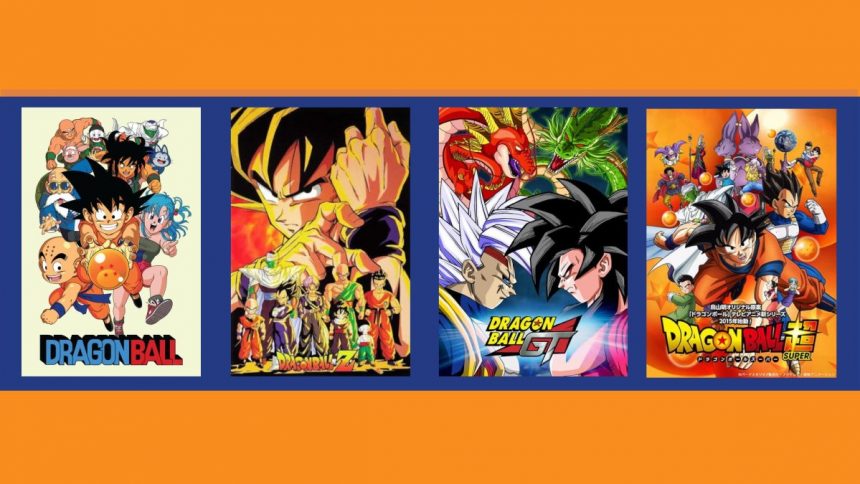Dragonball is one of the most iconic anime and manga series to have ever been created. It has captured the hearts of fans worldwide with its unique blend of fight, comedy, and memorable characters. What began as a lighthearted adventure quickly transformed into an intense fighting saga, captivating audiences along the way. In this article, we will explore the evolution of Dragonball, tracing its journey from a comedy-focused series to a renowned fighting epic.
The Origins of Dragonball, Journey and Comedy
The Early Days of Dragonball
Dragonball was first introduced to the world in 1984 by Akira Toriyama. The series initially drew inspiration from the classic Chinese novel “Journey to the West” and followed the adventures of a young boy named Goku. In its early stages, Dragonball primarily focused on Goku’s comedic misadventures and his quest to collect the seven magical Dragon Balls. The humor-filled escapades and whimsical storytelling captured the attention of audiences, establishing Dragonball as a beloved comedy anime.
A Comedy Anime
Dragonball’s comedic elements were integral to its initial success. The series featured slapstick humor, witty banter between characters, and absurd situations that left viewers laughing. Goku’s innocent and naive personality, coupled with his insatiable appetite and childlike curiosity, brought a lightheartedness to the show. The comedy was a key component of Dragonball’s charm, appealing to both younger and older audiences alike.
Building the World and Characters
As Dragonball progressed, it expanded its universe and introduced a diverse cast of characters. From the shape-shifting Oolong to the perverted Turtle Hermit, the show introduced a wide range of personalities that added depth and variety to the storytelling. These characters, along with the vibrant and imaginative world they inhabited, further enriched the comedic aspects of the series. The early chapters of Dragonball laid a strong foundation for what was to come, setting the stage for the transformation that awaited.
Further Readings: Dragon Ball and Journey to The West: Epic Adventures and Shared Themes
Dragonball: Starting From Comedy, Shifting to Fighting
The Introduction of Martial Arts
Dragonball took a significant turn when it introduced martial arts as a central theme. The series began to incorporate more intense and strategic battles, showcasing the characters’ combat prowess. Goku’s journey to become a martial arts master became a focal point, as he trained under various mentors and learned powerful techniques. This shift from comedy to fighting brought a new level of excitement and depth to the series, captivating fans in a whole different way.
The Arrival of Powerful Enemies
As Dragonball evolved, so did the challenges faced by Goku and his allies. Powerful enemies with incredible abilities started to emerge, posing a threat to the world and forcing the characters to push their limits. Villains like Piccolo, Frieza, and Cell pushed Goku to the brink, resulting in epic battles that showcased the series’ transition from comedy to high-stakes fighting. The introduction of these formidable adversaries marked a turning point in Dragonball’s narrative, elevating the intensity and raising the stakes for the protagonists.
The Evolution of Goku
Throughout the series, Goku underwent remarkable growth and transformation. From his humble beginnings as a carefree and innocent child, Goku matured into a formidable warrior. He constantly sought to improve his skills, harnessing new forms and techniques to overcome increasingly powerful opponents. Goku’s personal development mirrored the progression of Dragonball itself, as it transitioned from a light-hearted comedy into a more serious and action-packed tale.
Impact on the Genre
Setting the Standard for Shonen Anime
Dragonball’s shift from comedy to fight fiesta had a profound impact on the anime industry, particularly the shonen genre. The series set a new standard for storytelling, blending humor, action, and character development in a way that resonated with audiences. Dragonball’s success paved the way for future shonen anime to explore similar themes, combining elements of comedy and intense battles to create engaging narratives. It inspired a generation of creators to push the boundaries of storytelling, leaving an indelible mark on the genre.
Influence on Future Series
Dragonball’s influence can be seen in numerous anime series that followed. Works like Naruto, One Piece, and Bleach have drawn inspiration from Dragonball’s formula ofcompelling storytelling and exhilarating fights. These series have embraced the combination of comedy and action, creating dynamic narratives that captivate viewers. Dragonball’s impact on the genre is evident in the prevalence of shonen anime today, with many shows striving to replicate its success by striking a balance between humor and intense battles.
Enduring Popularity
The Power of Nostalgia
One of the key factors contributing to Dragonball’s enduring popularity is the nostalgia it evokes. For many fans, Dragonball holds a special place in their hearts as a beloved childhood series. The memories of watching Goku’s adventures unfold and the excitement of witnessing epic battles have left a lasting impression. As a result, the series continues to attract new viewers while retaining its dedicated fanbase, who eagerly follow the latest iterations and spin-offs.
Continued Iterations and Spin-offs
Dragonball’s popularity has led to the creation of various iterations and spin-offs that keep the franchise alive. Dragonball Z, Dragonball GT, and Dragonball Super have expanded the original story, introducing new characters, arcs, and power levels. These series have allowed fans to reconnect with familiar characters while exploring fresh narratives. Additionally, Dragonball has spawned movies, video games, and merchandise, further cementing its status as a cultural phenomenon.
Conclusion
Evolution from a comedy focused series to a captivating fighting saga showcases the versatility and enduring appeal of the Dragonball franchise. What started as a lighthearted and humorous adventure grew into an intense and action-packed story that captivated audiences worldwide. Dragonball’s influence on the anime industry, particularly the shonen genre, cannot be overstated. Its unique blend of comedy and fighting set a new standard for storytelling, inspiring future series and captivating generations of fans. As Dragonball continues to evolve and expand, its enduring popularity stands as a testament to its enduring legacy.













